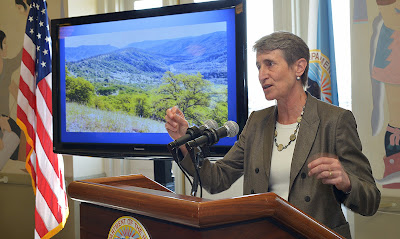The Colonial Whisperer

When I was writing my dissertation more than 10 years ago, one question that I constantly had, was what is the "Department of Interior" in the United States, especially in relation to the territories. The easy answer is that it is the office to oversees them. It is the office that oversees the natural resource, the parks, the relations with Native Americans, but also the way the US connects to its insular areas and colonies. We can refer to the Department of the Interior as the make-shift colonial office, a colonial office in denial that it is a colonial office. The office manages resources and helps to remind those of us who live in the territories that we are a resource, that our lands, our lives are more explicitly than any other place within the US and its empire, thought of as a commodity. The fact that our strongest link to the federal bureaucracy is the DOI is key in understanding our relationship to the US. We may have a variety of fantasies about what we are to


